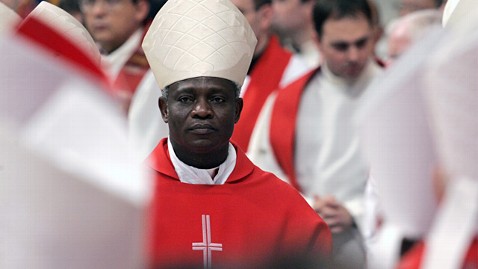JOHANNESBURG (Reuters) - South African "Blade Runner" Oscar Pistorius, a double amputee who became one of the biggest names in world athletics, was charged on Thursday with shooting dead his girlfriend at his upscale home in Pretoria.
Police said they opened a murder case after a 30-year-old woman was found dead at the Paralympic and Olympic star's house in the Silverlakes gated complex on the capital's outskirts.
Pistorius, 26, and his girlfriend, model Reeva Steenkamp, had been the only people in the house at the time of the shooting, police brigadier Denise Beukes, told reporters, adding witnesses had been interviewed about the early morning incident.
"We are talking about neighbors and people that heard things earlier in the evening and when the shooting took place," Beukes said outside the heavily guarded residential complex. Earlier, police said a 9mm pistol had been found at the scene.
Beukes said police were aware of previous incidents at the Pistorius house. "I can confirm that there has previously been incidents at the home of Mr Oscar Pistorious, of allegations of domestic nature," she said.
Pistorius, who uses carbon fiber prosthetic blades to run, is due to appear in a Pretoria court on Friday.
"He is doing well but very emotional," his lawyer Kenny Oldwage told SABC TV, but gave no further comment.
A sports icon for triumphing over disabilities to compete with able-bodied athletes at the Olympics, his sponsorship deals, including one with sports apparel group Nike, are thought to be worth $2 million a year.
South Africa's M-Net cable TV channel said it was pulling adverts featuring Pistorius off air immediately.
"WE ARE ALL DEVASTATED"
Steenkamp's colleagues in the modeling world were distraught. "We are all devastated. Her family is in shock," her agent, Sarita Tomlinson, tearfully told Reuters. "They did have a good relationship. Nobody actually knows what happened."
Pistorius, who was born without a fibula in both legs, was the first double amputee to run in the Olympics and reached the 400-metre semi-finals in London 2012.
In last year's Paralympics he suffered his first loss over 200 meters in nine years. After the race he questioned the legitimacy of Brazilian winner Alan Oliveira's prosthetic blades, though he was quick to express regret for the comments.
South Africa has some of the world's highest rates of violent crime, and many home owners have weapons to defend themselves against intruders, although Pistorius' complex is surrounded by a three-meter high wall and electric fence.
In 2004, Springbok rugby player Rudi Visagie shot dead his 19-year-old daughter after he mistakenly thought she was a robber trying to steal his car in the middle of the night.
Before the murder charge was announced, Johannesburg's Talk Radio 702 said the athlete may have mistaken Steenkamp for a burglar.
Recent media interviews with Pistorius revealed he kept an assortment of weapons in his home.
"Cricket and baseball bats lay behind the door, a pistol by his bed and a machine gun by a window," Britain's Daily Mail wrote in a profile published last year.
Pistorius was arrested in 2009 for assault after slamming a door on a woman and spent a night in police custody. Family and friends said it was just an accident and charges were dropped.
"He's very quiet and very modest but he's a big party animal," one of South Africa's top runners, who knows Pistorius, told Reuters. "I've been with him when we've been smashed and he never seemed violent," said the runner, who declined to be named.
OLYMPIAN UNDERGOES POLICE TESTS
Steenkamp, a regular on the South African social scene, was reported to have been dating Pistorius for several months.
In the social pages of last weekend's Sunday Independent she described him as having "impeccable" taste. "His gifts are always thoughtful," she was quoted as saying.
Some of her last Twitter postings indicated she was looking forward to Valentine's Day on Thursday. "What do you have up your sleeve for your love tomorrow???" she posted.
Pistorius was on Thursday being processed through the police system. "At this stage he is on his way to a district surgeon for medical examination," the police brigadier said.
"When a person has been accused of a crime like murder they look at things like testing under the finger nails, taking a blood alcohol sample and all kinds of other test that are done. They are standard medical tests," Beukes said.
Pistorius is also sponsored by British telecoms firm BT, sunglasses maker Oakley and French designer Thierry Mugler.
"We are shocked by this terrible, tragic news. We await the outcome of the South African police investigation," a BT spokeswoman said before Pistorius was charged.
A Nike spokesman in London said before hearing of the murder charge that the company was "saddened by the news, but we have no further comment to make at this stage".
Pistorius also has a sponsorship deal with Icelandic prosthetics manufacturer Ossur.
"I can only say that our thoughts and prayers are with Oscar and the families involved in the tragedy," Ossur CEO Jon Sigurdsson told Reuters. "It is completely premature to discuss or speculate on our business relationship with him."
Neighbors expressed shock at the arrest of a "good guy".
"It is difficult to imagine an intruder entering this community, but we live in a country where intruders can get in wherever they want to," said one Silverlakes resident, who did not want to be named.
"Oscar is a good guy, an upstanding neighbor, and if he is innocent I feel for this guy deeply," he said.
(Additional reporting by Sherilee Lakmidas, David Dolan, Ed Cropley, Jon Herskovitz, Keith Weir and Kate Holton; Writing by Ed Cropley; Editing by Will Waterman and Peter Millership)










